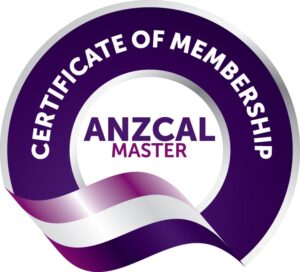As Christmas approaches, along with the end of a particularly eventful year, now is the perfect time to choose a few well-considered goals that will move you towards success for the new year ahead. While goal setting makes our intentions explicit, it is only the beginning of the work that will lead to success. We also need to create new habits that will make our goals stick, so that our intentions become our reality.
Forming new habits is where the real hard work begins, as it requires us to implement changes. If we want to change the outcome, we need to change what we do. Stephen Covey famously said:
“One thing’s for sure. If we keep doing what we‘re doing, we‘re going to keep getting what we‘re getting. One definition of insanity is to keep doing the same thing and expect different results.”
If goals represent our intentions, then habits represent our actions. Intentional action is required by creating new daily habits or actions that will serve you well and lead you to achieve your goals, little by little, bit by bit, day by day.
A few years ago, I came across the following 8 improvement insights from John Maxwell – speaker, pastor and author of over 70 books, primarily on leadership:
“Whether you want to improve your health or grow your business, or you have any other long-term improvement goal, keep these insights in mind:
1. Don’t be afraid to admit you were wrong.
We can’t change if we’re unwilling to recognize that there might be something wrong with how we’ve been doing things. Admitting you were wrong proves you are wiser today than you were yesterday. One of the things I always do when I review the past year is identify where I wasn’t productive.
2. You will never change your life until you change something that you do daily.
Improvement is based on two things: the decisions we make; and the disciplines we practice. Acting on our decisions daily is what makes a goal a reality. So identify the disciplines you intend to practice on a daily basis.
3. You cannot manage what you cannot measure.
Be specific in creating your goals. For example, don’t say, “I’m going to read more this year.” Instead, break it down into measurable increments: “I’m going to read two chapters per day in whatever book I’m reading” or “I’m going to read two books a month.”
4. Set realistic expectations for your improvement.
Want to lose weight? Be realistic in how many pounds or kilograms you can reasonably expect to lose in a month. There’s no greater recipe for failure than setting a “goal” that’s little more than a “pipe dream.”
5. Continual change is essential for continual improvement.
One of the great paradoxes of success is that the things which got you there are seldom the things which keep you there. Be prepared to make course corrections and continue to stretch and grow throughout the year. To do that, plan a review of your plan every few months.
6. Motivation gets you started. Habits keep you going.
We tend to overestimate what we can do in a month. We underestimate what we can do in a year. That’s why so many New Year’s resolutions are broken in the first few months. Focus on establishing habits, and you’ll be able to continue when the motivation fades.
7. Focus.
Psychologist William James said, “If you would be rich, you will be rich; if you would be good, you will be good; if you would be learned, you will be learned. But wish for one thing exclusively, and don’t at the same time wish for a hundred other incompatible things just as strongly.”
What is the one area in which you most desire to grow and succeed in the coming year?
8. Spend 80% of your time working on your strengths.
This refers to your skill set, not your character. There are two weak areas in character that must be addressed because they will hurt you: self-discipline and attitude. But in your skills, focus on developing and growing in your areas of strength. Growing in a weak area might bring you up to average in that area. But growth in a strength area has the potential to make you exceptional!
What is your greatest strength? And how can you improve it?
Review your past year and set goals as you enter the year ahead. But remember, success develops daily over time, not in a day.
One practical approach to stay on track is to regularly ask yourself this question: “Is what I am doing today getting me closer to my goal tomorrow?” Develop good habits and the discipline to keep them, and evaluate every day, and you’ll stay on course toward achieving your long-term goals.”
What new life-changing habits are you intending to implement?
© Gaynor Clarke, 2020
Gaynor is a teacher educator and mentor facilitating personal & professional leadership wellbeing outcomes for teachers.
If you are an early childhood teacher or leader looking to enhance your leadership skills, I would love to work with you. As a leadership mentor and coach, I specialize in helping early childhood educators develop their leadership potential and make a positive impact for the ākonga they serve. If you are interested in learning more about my leadership mentoring services, please visit my website or contact me directly to schedule a consultation. I would love to work with you!
Reach Education Ltd
Reach. Teach. Lead.









Leave a Comment
You must be logged in to post a comment.